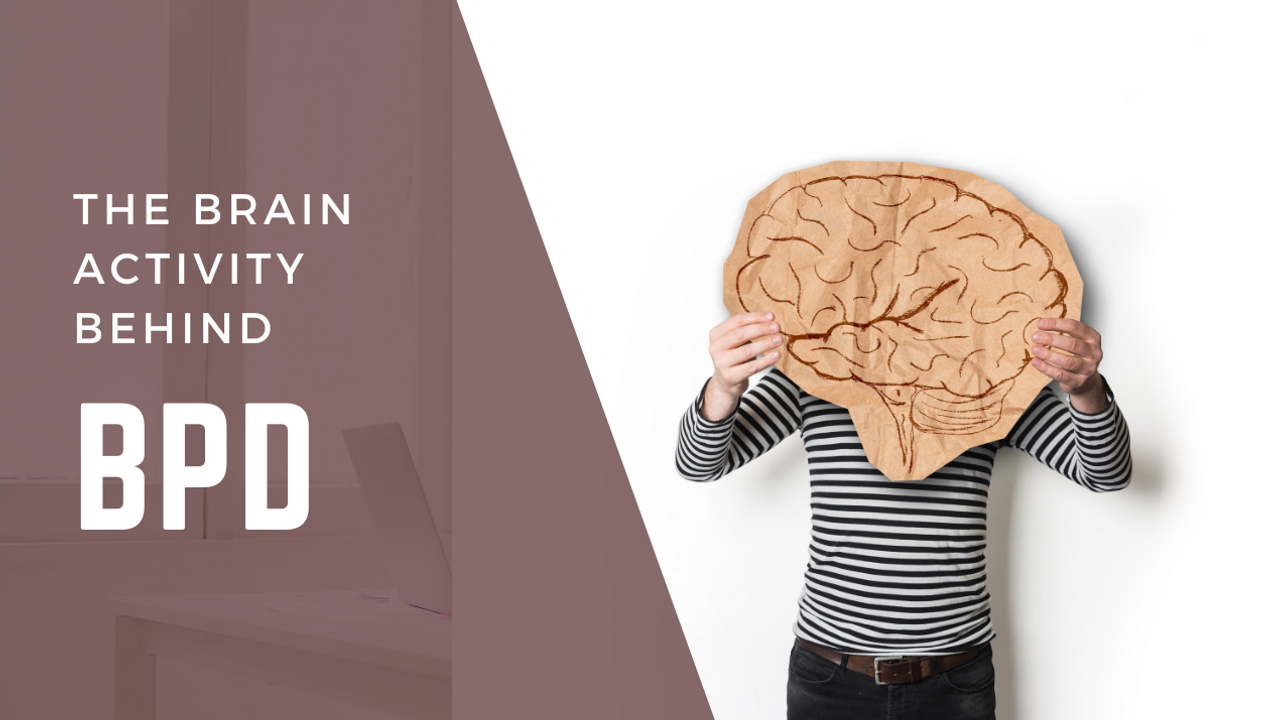
The Brain Activity Behind Borderline Personality Disorder
In this post, we will get a brief overview of the brain activity behind Borderline Personality Disorder. In addition, we will look at how these processes affect our behavior in ways that require more than just pure self-control to change.
The Limbic System
The limbic system is a set of brain structures including the amygdala and the hippocampus. It is one of the "oldest" parts of the brain, containing many of the structures we use to regulate our bodies and respond to threats.
Imagine a caveman, living out in the wild, fending off predators and protecting a food supply. You can imagine the importance of quick, automatic functions like survival instincts for the caveman. He must react quickly to potential threats in the environment... sounds, movement, smells... Similarly, the limbic system in the BPD can react quickly to real or perceived threats in our environment. Sometimes all it takes is a sound or a smell to set off our limbic system.
The limbic system is meant to help us survive, just like the caveman. It includes functions like the fight-or-flight response, memory, and a reward system for learning new behaviors. The limbic system uses a tricky balance of brain chemicals to perform these functions,
Amygdala and Hippocampus
The amygdala and hippocampus have been shown to be smaller in people with Borderline Personality Disorder, using imaging like fMRI scans. These brain structures are related to memory recall and learning. They involve attention, response mechanisms, and emotional functioning. They even play a part in understanding social information like interpreting emotions from other people’s faces. As you’ve probably noticed, these are some of the main areas we struggle with as BPD survivors. We may struggle to pay attention to anything but a threat. We may respond to things with intense reactions and emotions. We may interpret situations quickly, and sometimes inaccurately. It’s no wonder we have difficulties with interpersonal relationships and unprovoked mood swings, when our limbic system is running wild!
Prefrontal Cortex
Also connected with the functioning of the limbic system is the activity of the prefrontal cortex. This area shows itself in fMRI scans to be underactive in the BPD brain. The prefrontal cortex affects personality, planning, decision-making, and short-term memory. It also influences the amount of self-control we have when we are emotional. Unfortunately, low activity in the prefrontal cortex can include symptoms like impulsivity and self-destructive behaviors. So besides being emotionally and physically overwhelmed, we can be logically impaired. Our frontal lobes aren't kicking in as they should, and it may be difficult to think through problems or come up with reasonable solutions when we are emotionally overwhelmed.
In other words, the brain activity behind Borderline Personality Disorder indicates we have a neurological problem, not just a personality problem. It's in our brains... but our problems are not just in our heads! This problem may require medical treatment and a re-training of our brain, through skills and therapeutic techniques, if we are to stand our best chances at lasting recovery.
Medicine alone won’t cure us, but sometimes it can help. Some medications help relieve symptoms and make it easier for our brains to function and think more clearly.
The most important thing is that we need to build new habits and new ways of thinking for healthy lifestyles and relationships. We have to re-train our brains to respond in more balanced ways to things that happen in our environment. And we can rebuild a life that is no longer ruled by our emotions or emotional reactions.
Understanding your brain can be an important first step in the recovery process.
When we don't understand our brains, we can fall into the pit of self-judgment, self-blame, and useless attempts to punish ourselves into being "different."
When we understand our brains better, we can be more compassionate towards ourselves, and embrace the journey to healing and change.


